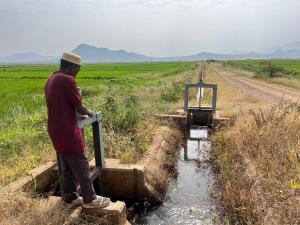Test project Pesticides and Protection Tanzania
testing out building a project
pece_annotation_1477259701
tamar.rogoszinski- The article delves into the presence of comorbidities that exist and how they can cause the development of menta illness. With this respect, it would be up to the response team to recognize vulnerable populations to ensure that adequate support. A background of these PTSD and MDD are presented using previous research as a backing.
- Also, the article explores pre, peri, and post factors and how emergency response can better prepare in order to minimize the effects of mental illnesses. Personal anecdotes and case studies helped affirm this point and crate a strong backing.
- Statistics and information about demographics helped create a whole picture that showed which groups would need to be targeted for help. It also helped create a framework for future reearch and assistance that would be needed.
pece_annotation_1477962468
tamar.rogoszinskiIt uses flow charts that are easy to understand and uses other charts that lead physicians to proper patient care.
pece_annotation_1472841420
tamar.rogoszinskiSonja D. Schmid uses data pertaining international response to the disaster that occurred in Fukushima. She uses references and information gathered that has to do with the reactions of various leaders. She uses past situations and opinions in order to formulate her conclusion and claim that there is a need for an international nuclear emergency response plan. She pulls from examples that show that many organizations that tried in the past to create a plan failed due to the lack of international authority.
pece_annotation_1478891023
tamar.rogoszinskiIt doesn't talk about these things because its focus is on depression and the ways in which stories and personal experiences could help doctors better the lives of their patients.
pece_annotation_1473443906
tamar.rogoszinskiThere are no references attached to the article, however, the author does refer to various news sources and has apeared to have interviewed UN officials and other people involved in rebuilding efforts via NGOs.
pece_annotation_1480344766
tamar.rogoszinskiEmergency response is not directly addressed in this article, but humanitarian aid is. Through the analysis of this aid, we can see which areas are in need of help and responders. Because humanitarian aid is a form of responders as well, it is important to understand their function in the context of emergencies and crises. It can also be implied that those receiving aid did at one point need emergency response teams.



the rice irrigation scheme, Pare Valley, Tanzania